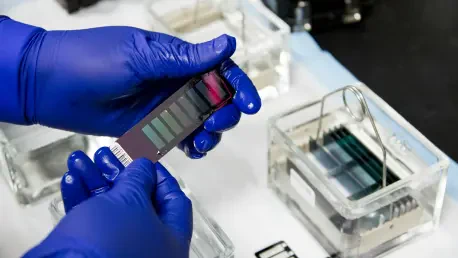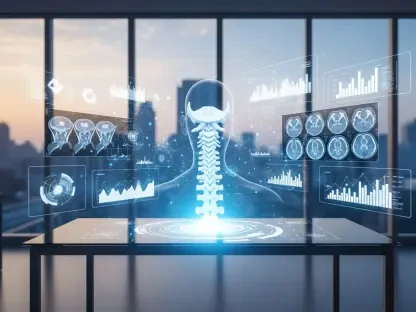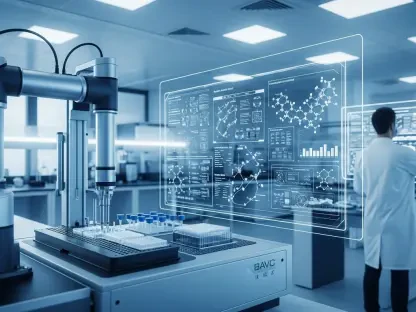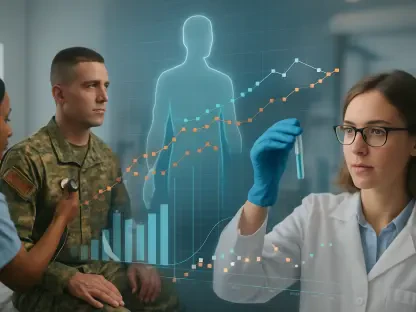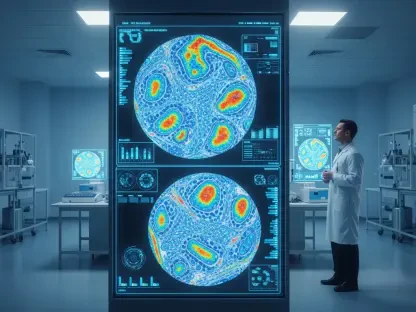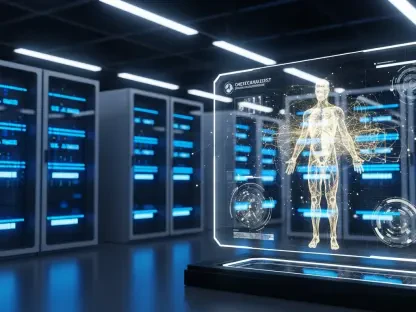The integration of artificial intelligence into the realm of biological research represents a seismic shift in scientific processes and methodologies. This evolution is vividly illustrated by the experiences of Malek Elsayyid, a graduate student from the University of Delaware, whose academic journey showcases the burgeoning role of AI in enhancing biological sciences. Inspired by the potential of AI after engaging with a curriculum at the Alfred Lerner College of Business and Economics, Elsayyid embarked on an exploratory path that highlights the transformative impacts of AI in scientific inquiry. Her story is emblematic of a broader movement across academia where interest in AI is proliferating, underscoring its pivotal role in revolutionizing traditional research practices and driving novel discoveries in biology.
AI’s Impact on Research Processes
AI has emerged as a formidable instrument in the research toolkit, dramatically altering the landscape of scientific inquiry by expediting processes and improving accuracy. In Malek Elsayyid’s case, AI was key in propelling her research into worm cell studies. The application of AI in analyzing cell images drastically reduced the manual workload traditionally involved in such studies. By automating data analysis, AI tools enhanced the precision of her investigations, particularly in processes like distinguishing between real and false fluorescent signals, which were crucial for studying protein localization accurately. This technological advancement is not merely a leap forward for Elsayyid’s field but signals a broader potential for AI to uncover deeper insights into intracellular dynamics, which could lead to breakthroughs in early disease detection.
Beyond individual applications, AI’s integration into research processes promises to alleviate bottlenecks that have historically plagued biological studies. By facilitating the automation of repetitive tasks and improving data interpretation accuracy, AI allows researchers to focus on more complex tasks and hypotheses. This efficiency is particularly beneficial in studies requiring high data throughput and intricate analysis, often seen in genomic studies or drug discovery. Additionally, AI capabilities extend beyond analysis; by equipping researchers with predictions and models based on large datasets, it helps in hypothesizing biological phenomena that would have been prohibitively complex to study using traditional methodologies. The result is a research environment that’s not only more efficient but also richer in potential scientific breakthroughs.
Educational Initiatives in AI
Recognizing the growing importance of AI, educational institutions like the Alfred Lerner College of Business and Economics are actively integrating AI-focused curricula into their programs. The introduction of courses dedicated to AI and its various applications is equipping students with the skills necessary to explore its potential beyond its traditional settings in business analytics. Such initiatives are crucial in shaping a workforce that is not only tech-savvy but also capable of interdisciplinary integration, a quality increasingly needed as fields like biology and computer science further intertwine.
Malek Elsayyid’s completion of a graduate certificate in AI and Data Visualization exemplifies the strategic educational shift towards fostering interdisciplinary acumen. These courses empower students to understand and apply AI within their specific domains, such as biology, where they can harness its capabilities to tackle complex research questions. This approach reflects a growing acknowledgment across educational platforms that AI literacy is indispensable in the modern research landscape. As AI continues to evolve, initiatives like these ensure that students are not just passive recipients of technological progress but active contributors who can leverage AI’s capabilities to drive innovation in their respective fields.
Interdisciplinary Collaboration
The synergy between AI and biology represents a frontier of innovation characterized by the need for professionals who can bridge the gap between these traditionally disparate fields. Malek Elsayyid’s explorations into AI applications within biology illustrate the demand for experts who can seamlessly navigate both domains. This cross-disciplinary integration is crucial, as AI’s potential in revolutionizing biological research relies heavily on the collaborative efforts between computer scientists and biologists, each bringing their expertise to bear on shared challenges.
Elsayyid’s research endeavors and professional engagements underscore the growing trend towards interdisciplinary collaboration. By leveraging her background in both AI and biology, she demonstrates how professionals with dual expertise can drive innovation and advance the frontiers of knowledge in areas such as diagnostics and biotechnology. AI’s capability to process and interpret vast datasets complements traditional biological methods, which often lack the computational power needed to unlock new scientific insights. This collaboration promises to extend the possibilities of both fields, enabling breakthroughs that transcend conventional scientific boundaries and enrich our understanding of biological systems.
Societal and Professional Implications
The incorporation of AI into biological research carries profound implications for both society and individual career paths. As AI continues to permeate the biological sciences, the demand for professionals possessing a blend of expertise in both fields is surging. Malek Elsayyid epitomizes this new breed of professional whose interdisciplinary skills position her favorably in an evolving job market eager for such innovative thinkers. Her participation in forums, such as the FinTech Innovation Hub, highlights AI’s expanding roles in biology while also shedding light on the current disconnect between the realms of computer science and biological research.
The professional landscape is steadily evolving to recognize and integrate the unique skill sets that AI-savvy biologists bring to the table. These professionals are not only capable of pushing the frontiers of biological research but are also adept at solving complex, multidisciplinary problems that require an understanding of both digital and biological systems. For society, this bodes well for the development of solutions to pressing challenges in healthcare and medicine, especially as AI’s applications in areas such as drug discovery and personalized medicine continue to unfold. The successful integration of AI into biology signifies a promising step towards a future where interdisciplinary collaboration becomes the norm rather than the exception.
AI’s Potential in Diagnostics and Medicine
AI’s transformative impact extends significantly into the fields of diagnostics and medicine, where it is poised to change how diseases are detected and treated. In Malek Elsayyid’s research, the application of AI tools illustrates the technology’s ability to facilitate innovative diagnostic methodologies, such as non-invasive techniques for early cancer detection. By enabling precise analysis of biological samples, such as proteins in blood, AI paves the way for breakthroughs that could revolutionize how medical conditions are diagnosed, especially in their earliest stages.
The broader implications of AI in medicine are profound, offering opportunities to enhance patient outcomes through more accurate diagnoses and personalized treatment plans. AI algorithms can analyze complex datasets far beyond human capability, identifying subtle patterns that may indicate disease long before traditional methods can. This capability not only improves early diagnosis but also opens new avenues for therapeutic development, tailoring treatments to individual patients based on their unique biological profiles. By supplementing conventional medical practices with AI-enhanced insights, healthcare providers can offer more informed and effective interventions, improving patient care and outcomes across the spectrum of disease management.
Pioneering a New Research Landscape
AI has become a powerful tool in scientific research, reshaping how we conduct studies by speeding up processes and improving accuracy. In Malek Elsayyid’s research on worm cells, AI played a crucial role. Using AI for cell image analysis greatly reduced the traditional manual work involved. This automation improved the accuracy of her research, especially in tasks like distinguishing real from false fluorescent signals, vital for correctly studying protein localization. This advancement is not just beneficial for Elsayyid’s research but showcases AI’s potential to enhance understanding of intracellular activities, potentially leading to early disease detection advancements.
AI’s integration into research can address bottlenecks that have long hindered biological studies. By automating repetitive tasks and improving data accuracy, AI enables researchers to focus on complex theories and tasks. This efficiency is particularly useful in fields requiring large data analysis, like genomics or drug discovery. Moreover, AI offers predictions and models from extensive datasets, aiding in forming hypotheses on complex biological phenomena, thus enriching research with potential breakthroughs.
